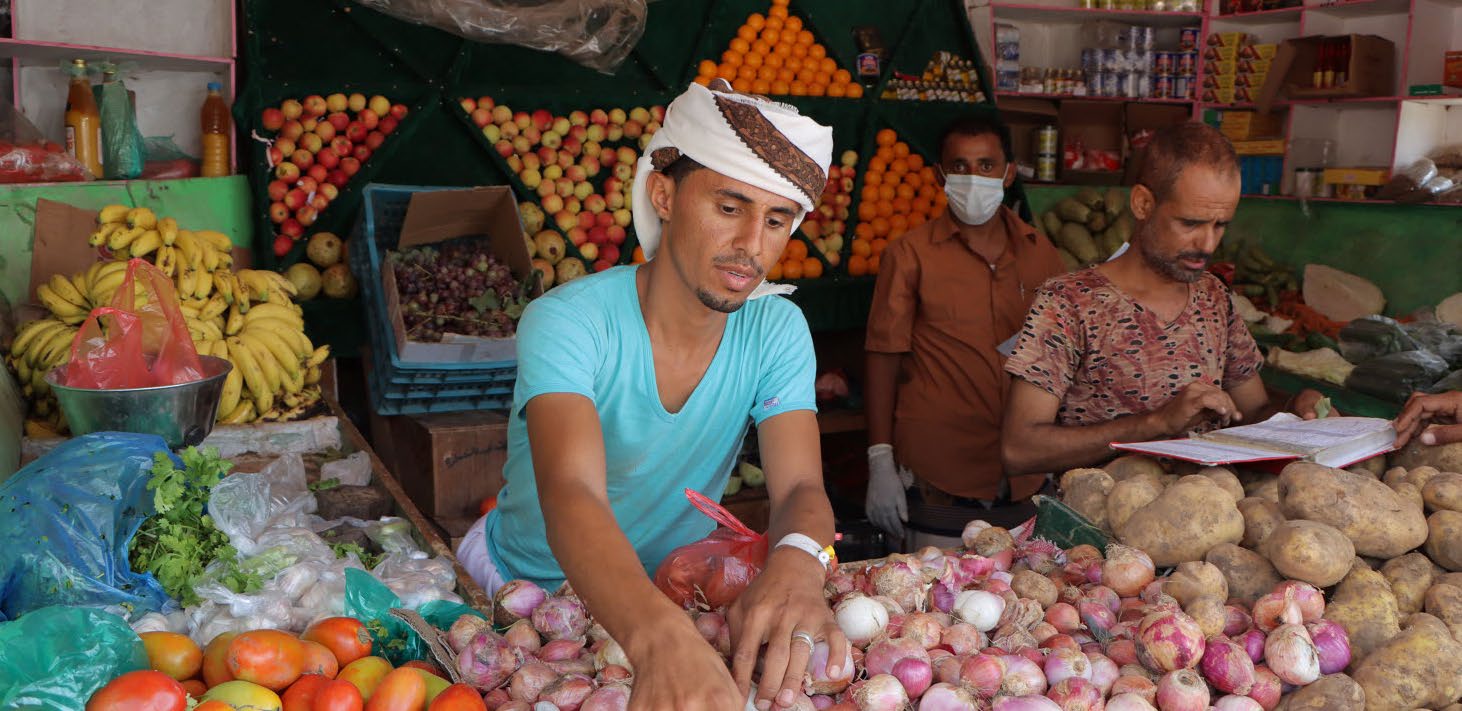Arab countries need to scale up innovative financial resources to transform agrifood systems
FAO publishes the fourth Food Policy Monitoring Bulletin for 2023

©FAO/Mahmood Mohammed
The last quarterly bulletin in 2023 focuses on the critical importance of increased investments in the transformation of regional agrifood systems. FAO was a strategic partner in organizing the 2023 World Investment Forum in Abu Dhabi last October, with nine sessions dedicated to the theme “Investing in Transforming Agrifood Systems”.
The lack of adequate public and private investments necessitates scaling up additional private and public investments in the region. “Existing agricultural subsidies should be redirected towards more sustainable and nutritious agricultural products”, emphasized Dr. Abdulhakim Elwaer, Assistant Director-General and Regional Representative. “Furthermore, additional, SDG-aligned, inclusive financial resources should be scaled up”, he added, “including innovative financial mechanisms, blended finance, and other instruments that lower the risks of agricultural investments”.
Regarding recent developments in the region, although the food consumer price index was still the highest in the Near East and North Africa region, compared to other world regions, food prices show a steady or decreasing trend in most regional countries. The majority of the crop plantings were carried out in November 2023 with favourable initial conditions.
Besides the tremendous human suffering, the Israel-Palestine conflict has immensely deteriorated the food insecurity in the Gaza Strip, where about 2.2 million people are facing acute hunger and farm production suffers a 1.6 million USD daily loss. FAO is mobilizing vital agricultural supplies, fodder, water, veterinary kits and fuel to Gaza, once access is made available.
In the broader region, Djibouti, Lebanon, Mauritania, Palestine, the Syrian Arab Republic and Yemen are expected to have a widespread lack of access to food, while Libya and Sudan are experiencing severe localized food insecurity.
Monitoring recent food policies in the region reveals that countries are diversifying towards cheaper wheat import sources, boosting food reserves and local production of food and fertilizers. The United Arab Emirates continues to develop a wide net of free trade agreements and plans to build a new trade corridor connecting Europe to the Near East and Asia. Trade restrictive measures in the region included the introduction of an export ban on olive oil in the Syrian Arab Republic, followed by Morocco.
One of the significant focuses of regional food policies continues to be reducing water stress and fighting climate change by measures such as constructing dams to harness rainwater, investing in drought-resistant crops, and water-saving irrigation. In addition, a genetic resources bank was set up in Saudi Arabia to safeguard the genetic diversity of plant resources. Countries also benefit from international cooperation and best practices in implementing smart farms, vertical farming, carbon footprint measurement and methane-reducing technologies, and increasing local production of dairy; regional initiatives included supplying drought-resistant seed varieties to Libya.
Contact
NENA Office Communications (+20) 2 3331 6000 [email protected]
